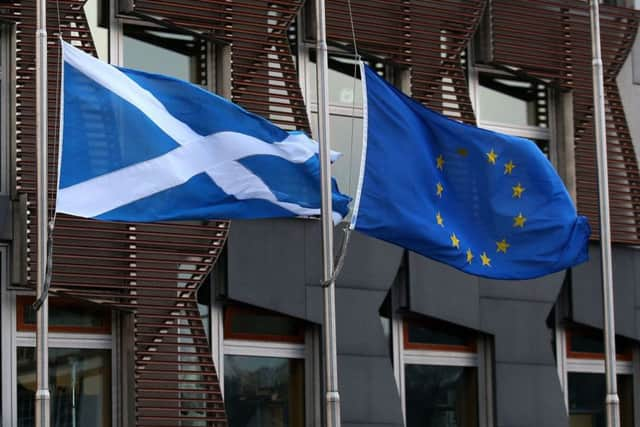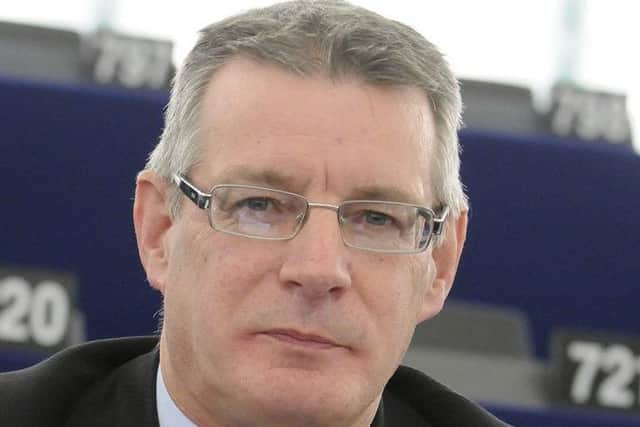'˜Give Scotland seat at Brexit talks or risk indyref2'
David Martin, a Scottish Labour MEP who sits on the European Parliament international trade committee, warned that deals touching on devolved responsibilities would have “room for interpretation” and should have devolved input.
And a Canadian trade expert who was involved in the CETA deal between Ottawa and Brussels warned that cross-border disputes over trade could boost demands for a second referendum on Scottish independence, saying: “Scotland would be entirely within its rights to request a seat at the table.”
Advertisement
Hide AdAdvertisement
Hide AdTalks between London and Edinburgh over how powers returning from Brussels in devolved areas are to be handled appear to be deadlocked.


Ministers have six weeks to fix a “power grab” clause in the EU Withdrawal Bill before crucial votes in the House of Lords. The Scottish and Welsh governments have said they will reject legislative consent without changes to the bill.
Scottish Brexit minister Michael Russell said last week that the dispute meant the UK was already sliding into a “constitutional crisis”.
Several of the 111 powers in question affect areas that are likely to be part of a future trade deal, including agriculture and fisheries. Public sector procurement is also likely to be subject to negotiations.
In the early stages of CETA, the then-EU trade commissioner Lord Mandelson insisted that Canadian provinces were involved in talks to prevent internal disputes derailing a deal.


Mr Martin said yesterday: “Procurement was such a big demand of the EU that unless Canada could promise to deliver on that – and under their constitutional structure, unless the provinces were involved they couldn’t promise to deliver – then there was not much point, in Mandelson’s view, of even starting negotiations.”
Jason Langrish, who worked on trade policy at the Canadian mission in Brussels before shepherding CETA as executive director of the Canada Europe Roundtable for Business advocacy group, added: “In order to prevent this coming to a head and ending up in the Supreme Court … they said, let’s take an enlightened approach and have the provinces participate at the negotiating table.”


Mr Martin said it would be “very logical” for Scottish ministers, who currently take part in EU discussions on devolved areas such as fishing, to continue that role in trade talks.
Advertisement
Hide AdAdvertisement
Hide AdHe said: “We have these disputes about EU law at the moment, so there’s a very good chance the exactly the same could apply if people were so minded to the interpretation of the EU-UK agreement.
“While legally, the UK government can do what it wants, the other thing from both a UK and an EU point of view is that devolved administrations could certainly be awkward in terms of devolved matters that there’s been an agreement on, and interpret agreements differently from the UK government. It would be best to get them engaged in the process.”
Mr Langrish said: “This will come up. It adds a further complication to a negotiation that doesn’t require any more complication.


“Scotland would be entirely within its rights to request a seat at the table.
“The British government is going to want to avoid that at all costs, because it’s just going to make their job that much more difficult and it could lead to acrimony that could enhance the prospects for Scottish separatism.”
The Liberal Democrat former deputy first minister and advocate general for Scotland Lord Wallace has also called for the Scottish Government to get a seat at trade talks.
“I would think it makes eminent good sense for that to happen,” he said. “That could only ensure that there are no crossed wires.”
